Visiting
Household visits
Care home visits



Leisure activities
We include:
- Grocery stores
- Pubs
- Cinemas
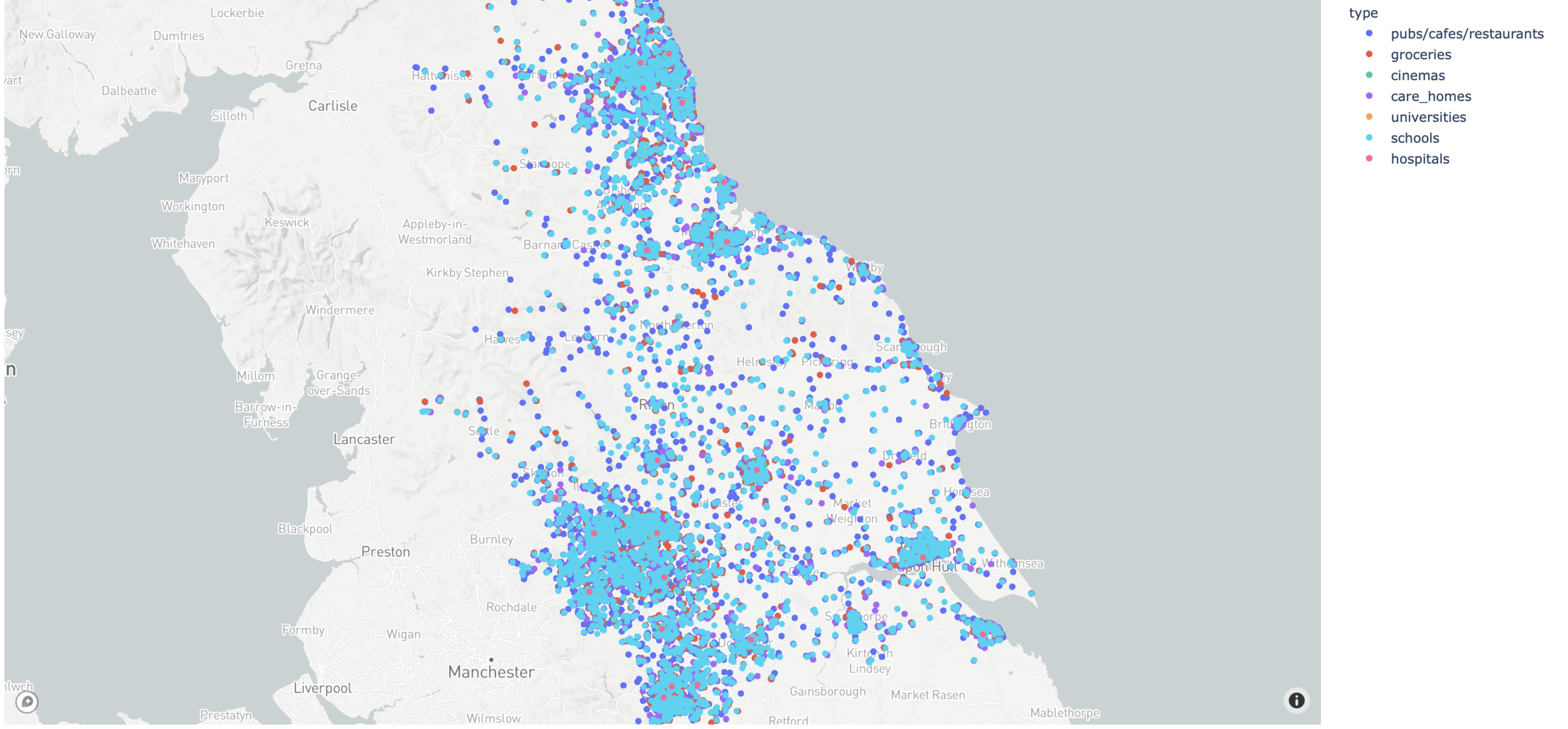
Visits and leisure activities
Probability of attending is based on data
Poisson distribution for decision
male_age_probabilities:
3-75: 0.03
75-80: 0.01
female_age_probabilities:
3-75: 0.03
75-80: 0.01
neighbours_to_consider: 5
maximum_distance: 15
weekend_boost: 1
drags_household_probability: 0.5Commuting
Commuting offers further mixing potential outside your immediate social and work group
Data on commuting derived from NOMIS 'flow data'
Public
Public
Private
Commuting
11 major stations identified for public commuting
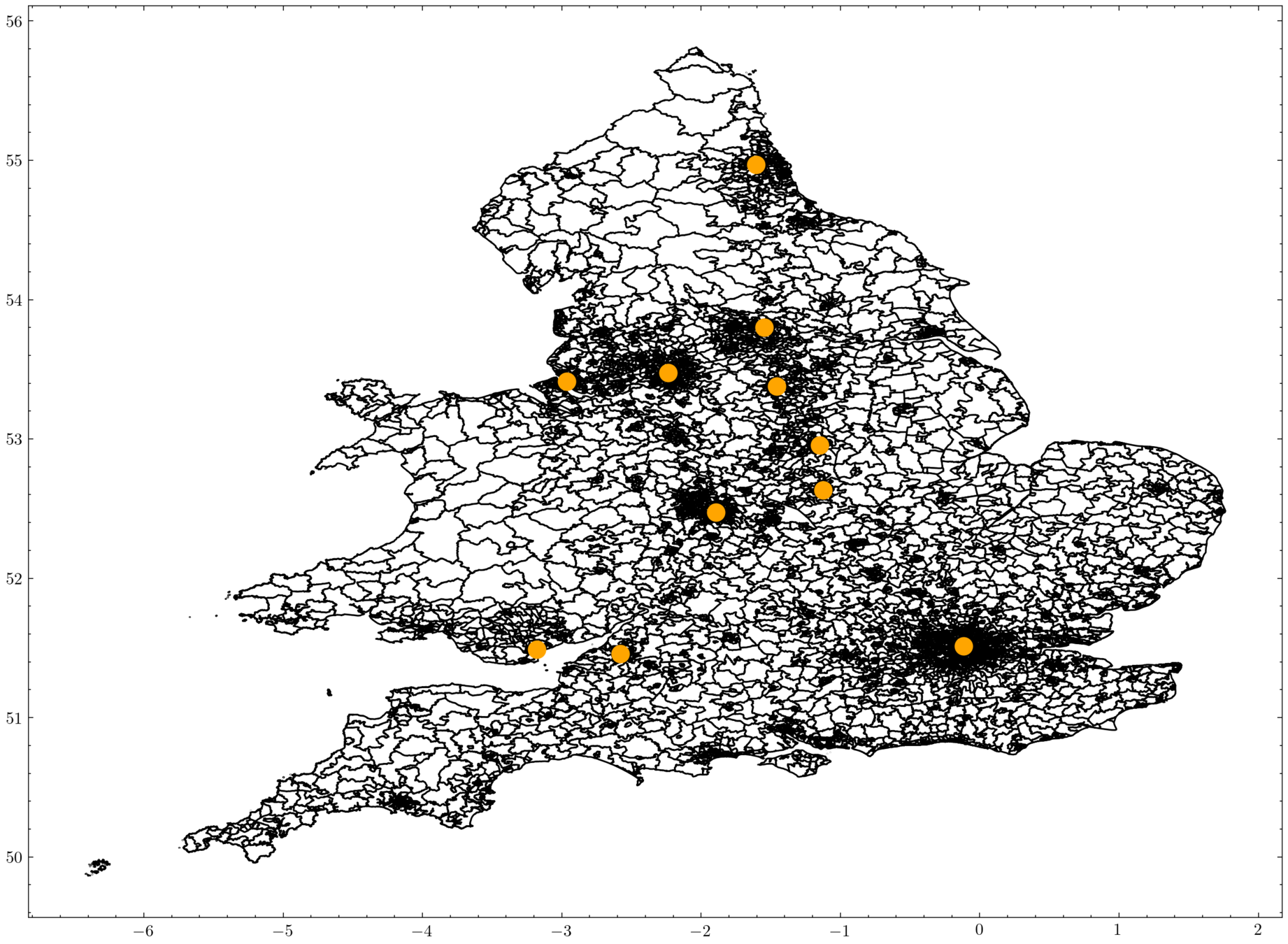
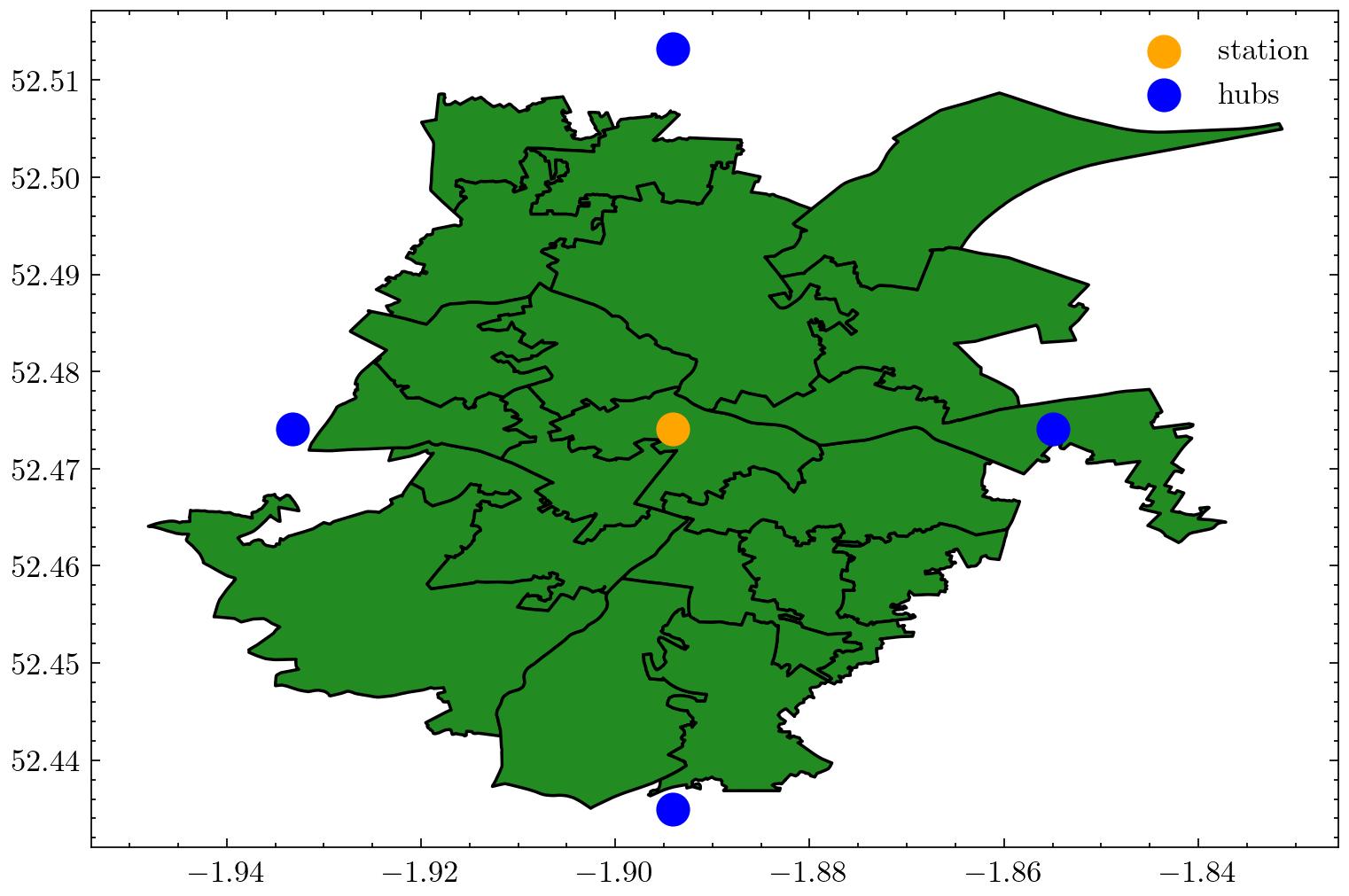
Inter-regional travel
Works in a similar way as commuting
Links created between 11 major cities
Data from National Rail and Department of Transport for departure/arrival numbers
Construct simulation for approximating origin-destination matrix


Validate against data
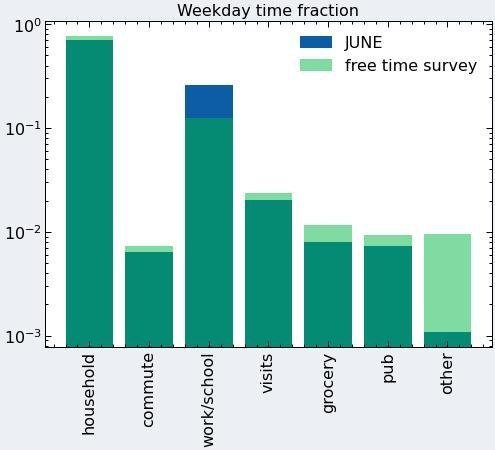
Free time survey:
Survey of how individuals spend their time during a typical work day
Policies
Policies can be turned on and off according to dates
The following policies have been implemented by the UK Government and are in the model:
| Policy | Date |
|---|---|
| Case isolation at home | 12/03/2020 |
| Voluntary household quarantine | 16/03/2020 |
| Voluntary working from home | 16/03/2020 |
| Voluntary avoidance of leisure venues | 16/03/2020 |
| Social distancing | 16/03/2020 then 23/03/2020 ('stay at home') |
| Shielding of vulnerable population | 16/03/2020 |
| Closure of schools and universities | 20/30/2020 |
| Closure of leisure venues | 21/03/2020 |
Case isolation, shielding and quarantine
Case isolation is the default policy in the model
Implementation:
- Anyone with symptoms of COVID-19 must stay at home
- Anyone over a certain age must stay at home
- People staying at home can still infect other members of the household
shielding:
min_age: 70
complacency: 0.7
start_time: 2020-03-16
end_time: 2020-07-04
quarantine:
n_days: 7 # for the symptomatic person
n_days_household: 14 # for the housemates
household_complacency: 0.6
start_time: 2020-03-16
end_time: 2021-07-04 Leisure avoidance and closure
Implementation:
- Leisure venues can be closed or avoided by type
close_leisure_venue:
start_time: 2020-03-21
end_time: 2020-07-04
venues_to_close: ['pub', 'cinema', 'care_home_visit'] change_leisure_probability:
start_time: 2020-03-21
end_time: 2020-07-04
leisure_activities_probabilities:
household_visits:
men:
0-64: 0.50
65-100: 0.25
women:
0-64: 0.50
65-100: 0.25
leisure_activities_probabilities:
care_home_visits:
men:
0-100: 0.05
women:
0-100: 0.05School and university closure
Implementation:
- Schools can be closed by year group
- Universities fully close
close_schools:
start_time: 2020-03-20
end_time: 2020-07-04
years_to_close: all
full_closure: False
close_universities:
start_time: 2020-03-20
end_time: 2020-10-01Company closure
Implementation:
- Identify all SIC codes of companies closed and assigned workers as 'furloughed'
- Identify all SIC codes of companies containing key workers and assign workers as 'key'
- All remaining workers assigned 'random'
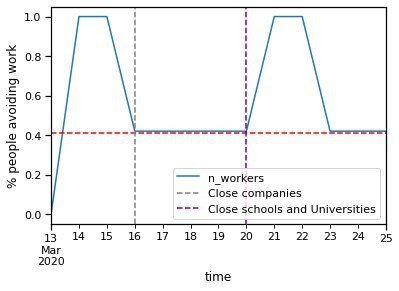
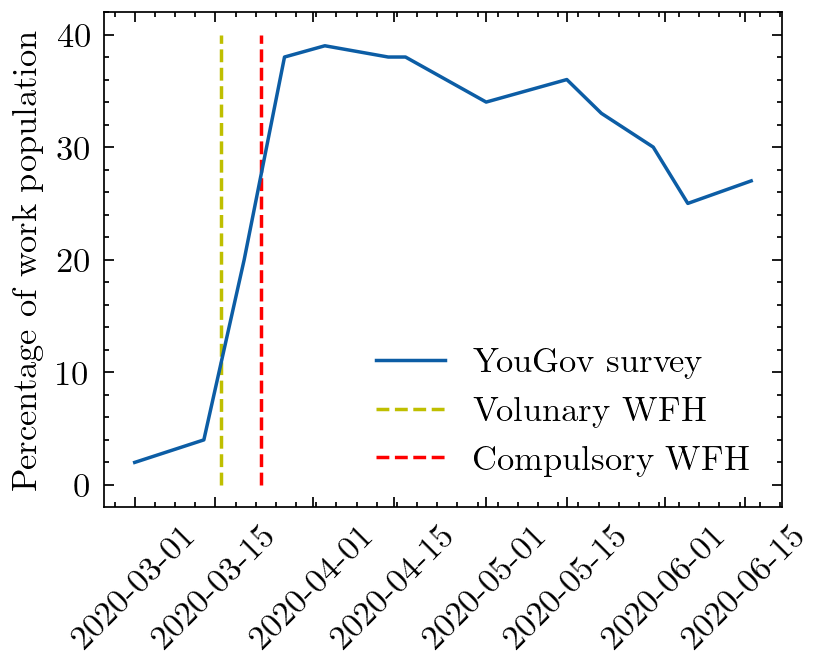
Social distancing
Implementation:
- Beta reduction by group
social_distancing:
start_time: 2020-03-16
end_time: 2021-07-04 # currently unknown
beta_factor:
box: 0.5
pub: 0.5
grocery: 0.5
cinema: 0.5
commute_unit: 0.5
commute_city_unit: 0.5
hospital: 0.5
care_home: 0.5
company: 0.5
school: 0.5
household: 1.0
university: 0.5"The strength of association was larger with increasing distance (2.02 change in RR per m)"
Chu et al., Lancet (2020)
Examples

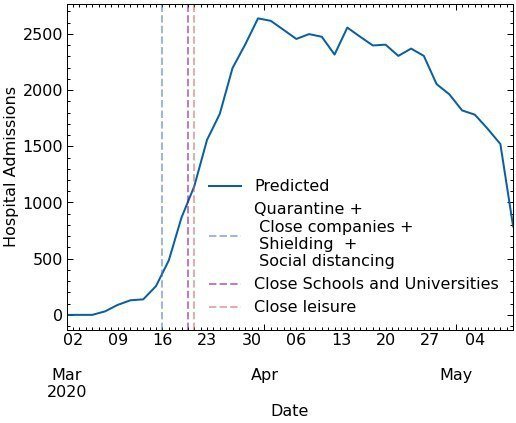
deck
By Joseph Bullock
deck
- 902